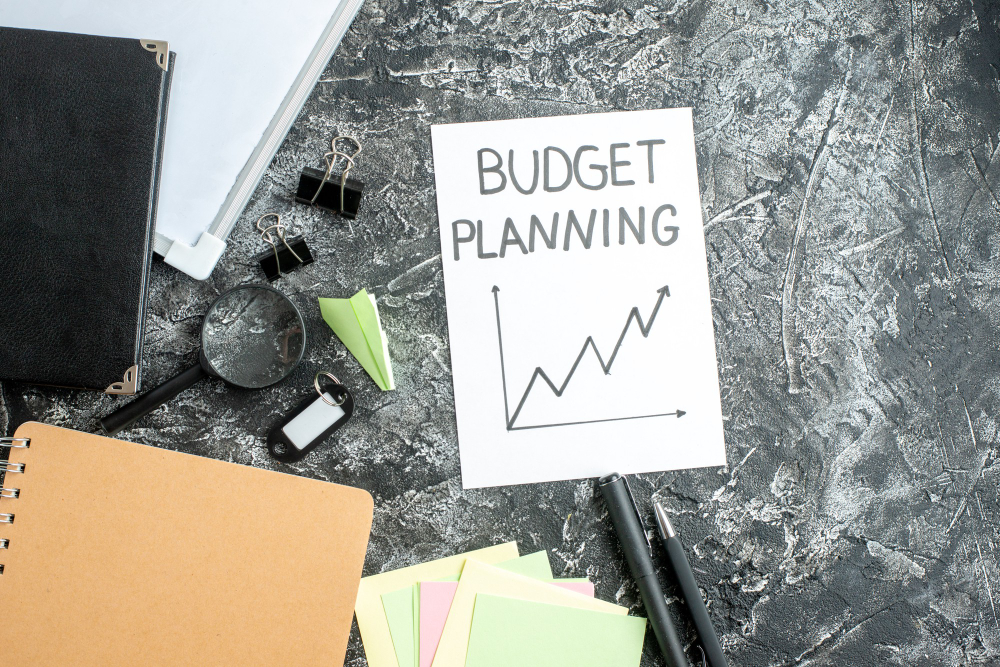Home Finances: How to make a monthly budget plan?

Creating a budget is one of the most important things you can do to make sure that your finances are on track. A good budget plan should help you get organized and make sure that you’re spending your money wisely.
Budgeting is a way of life for many people. It may seem like an unnecessary step to take, but it can help you save money in the long run. You’ll have a better idea of how much money you’re spending on items such as rent and utilities, and you can make adjustments accordingly.
Home budgeting for your family
Budgeting for your home is an important part of being a homeowner. A budget helps you plan and manage your finances, so you can make sure you have enough money to pay your bills and save for the future.
Budgeting can also help you create a spending plan that considers all of your expenses. Once you know what you need to spend and where it’s easier to stick to your budget. Here’s how to create a monthly home budget:
Start with a budget and cash flow worksheet
To get started, you’ll need to use a budget worksheet. This can be as simple or complex as you want it to be, but there are a few key things that all budgets should include:
- an estimate of your total income for the month
- an estimate of your fixed costs and expenses for the month
- a place to record what you spend each day or week (this can be added later)
When using a budget worksheet, it’s important to keep track of both your income and expenses so that you can see where money is going and how much financial freedom is left over.
List your income.
Your monthly income is the money that comes from your job, either as a salary or as profit from your own business performance.
Your income may also come from other sources, such as side hustles, investments, project management, and rental properties. Your net income can be highly variable depending on how many of these sources you have. That’s why it’s important to track your income even if you don’t think it’s much yet.
Figure out how much you spend on bills each month
The first step to making a budget is knowing how much you currently spend each month. Start by writing down or typing out your fixed expenses or bills, like:
- rent or mortgage
- utilities (electricity, water, and gas)
- home insurance
- health insurance
Next, think about how much money goes toward food (groceries), transportation (gas and car maintenance), clothing, or other expenses that are not considered necessary. While these items are important to your happiness, they aren’t necessary for survival so we’ll leave them out of this part of the budget process.
Include all other monthly expenses in your budget plan
Include all other expenses in your budget plan. This includes purchases that you make regularly, variable expenses, and one-off expenses, such as the occasional lunch with a friend or the cost of getting your car repaired. If you’re good at saving and investing money, include this in your budget as well.
However, don’t forget to include variable costs and unexpected expenses as well. You can use an app to manage these types of things automatically for you by setting up alerts when something costs more than usual.

Find ways to save money
When doing budget planning, it’s important to include a section for savings. You can save extra money in different ways:
Save for an emergency fund.
You should try to put something away every month that will be available if an emergency strikes or for debt repayment. Experts recommend keeping six months of living expenses on hand in case something goes wrong and you need the cash quickly. If you’re close enough to retirement age, consider saving up extra so that when you retire, it won’t feel like starting over again.
Save for special events
Maybe one day soon, someone will ask you how much money they should save for their wedding or honeymoon. Or maybe someday one of your kids will want to go traveling with the whole family. Whatever it is that someone wants from life, chances are there’s something else they’ll want later on down the road.
Save for retirement
It’s never too early (or late) to start thinking about what comes after work life—and with today’s social security system less than stable, we all need alternative plans. Check your bank statements regularly.
Make sure that it is realistic.
You should be able to live off of the money you have set aside for expenses, leaving nothing left over at the end of each month. This means that if you don’t pay a certain expense every month (e.g., electricity bill), then include this in your budget as well so that there are no surprises when it comes time for payment.
Put your budget plan into action
Once you’ve created your budget plan, it’s time to put it into action. Here are some tips on how to do so:
- Make sure that you’re tracking your spending properly and accurately.
If there are any changes in the way or timing of payments—due to switching jobs or moving—be sure to update these in your tracking tools as soon as possible so that you can keep up with them from month to month.
- See if there are any areas where spending is higher than expected, and try to figure out why.
Are there certain products or services that seem more expensive than they should be? Think about ways that could be reduced or eliminated so that they don’t throw off the rest of the plan too much.
Make adjustments to your budget at the end of each month.
As you start to track your monthly expenses and income, you may find that your budget plan does not match up with what you actually spend. Now you have the opportunity to make adjustments for the next month.
If it turns out that you are spending more than what’s coming in, this is where cutting back on spending will come into play. You’ll need to look at where all of your money is going: transportation? groceries? entertainment? The best way to do this is by looking at each individual category of expense and seeing how much money goes towards each one.
From there, prioritize which ones are most important. Then cut back on other categories so that they’re closer in balance with the others. If possible, try negotiating lower rates with any services like cable or internet providers who offer package discounts if paid annually instead of monthly payments.
If it turns out that things went well over budget during one month but not another, look at ways of increasing those underperforming categories so they perform better next time. Maybe consider getting rid of some subscriptions or canceling certain services altogether if they aren’t worth their cost savings.

Adjust your budget plan as needed to fit your lifestyle
In most cases, the best way to do this is by adjusting your monthly budget as needed. For example, if one of the items in your budget doesn’t work out as planned, then go ahead and adjust that item accordingly.
You can also put any additional money into savings or invest it in real estate properties. The important thing is that once everything is set up on paper and working properly, tweaking it will become easier and easier over time as you get used to using cash instead of credit cards or debit cards. You should always remember that a business budget is different from personal budgeting. A personal budget for your family will not involve a sales budget and business expenses.
Making a monthly home budget plan can help you keep track of your finances.
A budget plan will help you with your financial health, save money, avoid debt, and prevent overspending.
You can use your budget plan to make sure you don’t spend more than what you have. If a bill comes up that needs to be paid and there’s not enough money in the bank at that time, then it’s important to know how much is coming in or going out each month so that you can plan ahead for next month and make sure there are funds available when needed.
It’s important to remember that you can make adjustments to your budget plan as needed. You may find that your income changes over time or expenses come up that weren’t accounted for in the first place. By keeping track of all of these factors, you can regulate spending habits, stay on top of your finances, and have complete control over what happens with them going forward.




